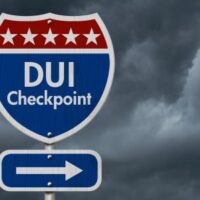Are DUI Checkpoints Legal in Orlando, FL?

Those driving in Florida need to be aware of DUI checkpoints and how they work. They are intended to deter drunk driving and are often set up on holidays. Navigating these stops can be stressful, but knowing the legalities involved, the guidelines law enforcement must follow, and your rights as a driver should help alleviate some of that stress. In this article, the Orlando, FL, DUI attorneys at FL DUI Group will discuss the legalities of DUI checkpoints and how to navigate them.
Are DUI checkpoints legal in Florida?
Yes. DUI checkpoints are legal in Florida. The U.S. Supreme Court has ruled that checkpoints are constitutional based on the state’s interest in preventing drunk driving, which outweighs the minor intrusion on individual rights. Nonetheless, there are some restrictions on how they are set up.
Guidelines for legal checkpoints in Florida
Law enforcement is required to abide by specific guidelines to ensure the legality of the checkpoint and ensure they don’t violate any constitutional protections. Steps law enforcement must take include:
- Public notice – Law enforcement agencies are usually required to notify the public in advance about both the location and the time of the checkpoint. This ensures transparency and allows drivers to avoid the area.
- Neutral criteria for selection – Officers are required to use a neutral method for selecting vehicles to stop. In other words, they can’t target cars without a specific procedure. For example, law enforcement might stop every third or fifth car, but they cannot stop drivers arbitrarily based on their appearance.
- Visible signs – The checkpoint must be clearly marked with signs, lighting, and uniformed officers. This ensures that drivers are aware of the checkpoint ahead of them.
- Supervisory oversight – A supervisor is required to oversee the checkpoint and ensure proper procedures are followed.
What should I do at a DUI checkpoint?
- Stop as instructed – You are legally obligated to stop at a DUI checkpoint. Failing to stop can lead to additional charges, such as fleeing and eluding law enforcement, which is a felony (unlike simple DUI).
- Provide required documents – You are obligated to provide your driver’s license, vehicle registration, and proof of insurance.
- Right to remain silent – You have the right to remain silent. You are not required to answer questions other than by providing your identification documents. For example, if the officer asks you if you’ve been drinking, you don’t have to respond.
- Right to refuse field sobriety tests – While most people don’t know this, it is within your rights to decline to take field sobriety tests (FSTs) without any legal consequences. However, the officer may be suspicious of your refusal and can potentially investigate further. The officer could have probable cause to initiate a breathalyzer test.
- “Implied consent” breathalyzer tests – You are obligated to submit to a breathalyzer or urine test after you’ve been arrested. Refusing a breath test after a lawful arrest can lead to a 12-month automatic suspension of your driver’s license.
- Right to an attorney – If you’re arrested at a DUI checkpoint, you should immediately request an attorney. You should also refrain from answering any questions until you have legal counsel.
- Avoiding the checkpoint – There’s no law that says you have to go through a DUI checkpoint by taking a legal turn before reaching it. However, if you commit a traffic violation while you’re attempting to avoid the checkpoint, law enforcement will have the grounds to stop you.
Talk to an Orlando, FL, DUI Lawyer Today
FL DUI Group represents the interests of Orlando-area residents who have been charged with DUI. Call our Florida DUI lawyers today to schedule an appointment, and we can begin discussing your defense immediately.
